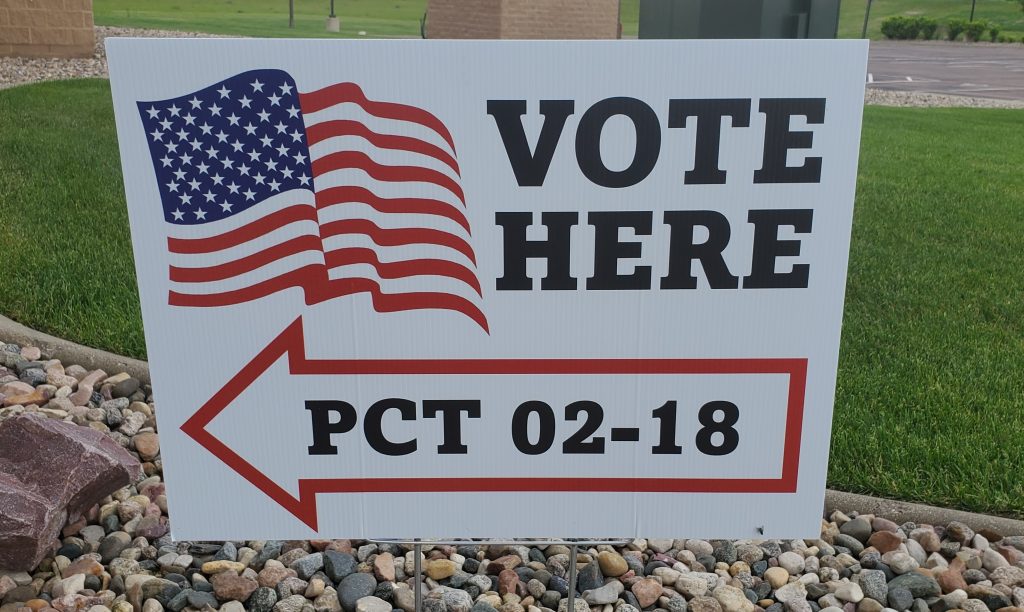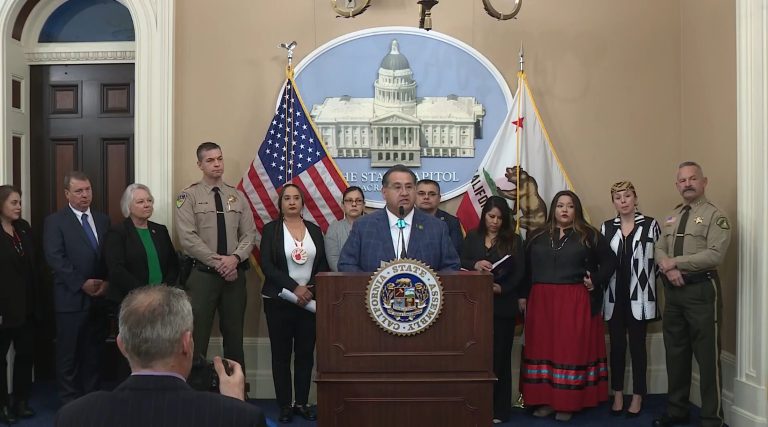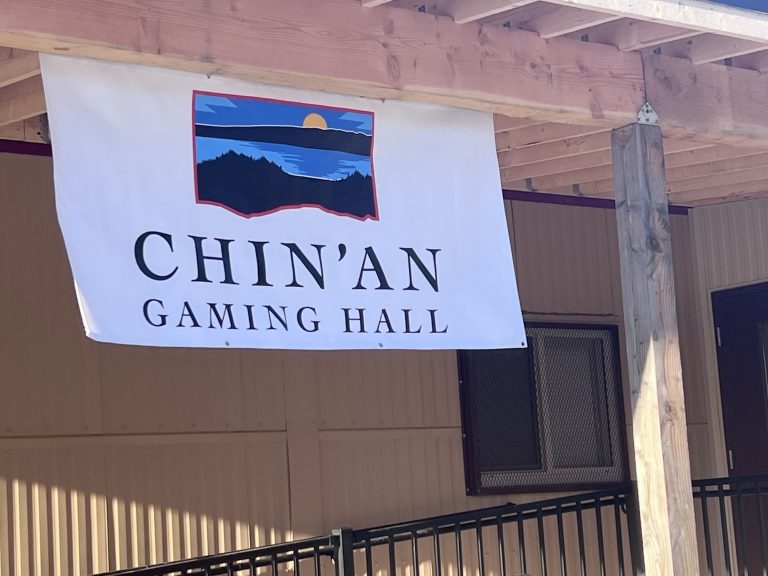Podcast: Play in new window | Download | Embed
As voter registration numbers decline in Native communities, the national Democratic Party is investing 70,000 into South Dakota to increase participation.
But some say the amount may not be enough to make a huge difference.
South Dakota Public Broadcasting’s Lee Strubinger has more.
The 70,000 to the state is part of a $2 million investment by the Democratic National Committee (DNC) into Republican-leaning states this election cycle.
Dan Ahlers is the executive director of the state Democratic Party.
“Certainly, this being the first of its kind where we have these targeted investments by the DNC in a presidential election year for noncompetitive states, this is huge. You just need to look and see what the surrounding states got. South Dakota did very, very well.”
Ahlers says more Native voters and candidates are important given the current state of state-tribal relations, which are strained.
Between milage costs to cover distances between rural communities, advertisements and an individual to run the program, the state party may have to invest some of its own money. That’s because of the large cost associated with voter registration efforts.
“I applaud the DNC. I’m hoping the RNC will do the same thing.”
That’s OJ Semans, the co-executive director of Four Directions, a voting rights and engagement group located in South Dakota. It conducts voter registration drives on Native American reservations across the country.
“Because it’s really important for Natives to become involved in the electoral process. When there’s outreach from the parties to do so, it’s always a good sign but it always falls short of what they need to do.”
Four Directions got its start in 2002 and has played a big role in US Senate races in South Dakota, helping Democratic US Senator Tim Johnson edge out Republican challenger John Thune by 500 votes.
Get out the vote efforts in South Dakota reservations cost around $500,000 that year. Two years later, during the Thune-Daschle Senate race, Semans says get out the vote efforts cost closer to $1 million.
Semans says there’s lessons to be learned from those races from 20 years ago.
“You look at this nationally, that same thing that happened in 2002 is on the boards now.”
Semans says the Native voting population in key battle ground states like Michigan, Wisconsin, Arizona and Nevada will play a crucial role in the 2024 election.
 Even without threats like hurricanes or rising ocean levels, climate change is already impacting places in northern Wisconsin.
Even without threats like hurricanes or rising ocean levels, climate change is already impacting places in northern Wisconsin.
An interactive website uses Indigenous knowledge about the environment to help visitors understand impacts in Lake Superior’s Apostle Islands.
Ben Meyer explains.
The Minisan website identifies 12 different ecosystems within Apostle Islands and includes the Ojibwe-language names for the islands on which they are found.
Through words, photos, and videos, the impacts of climate change are explained from a traditional ecological knowledge perspective.
Visitors can learn about the ways climate will affect four different areas in each ecosystem.
Cathy Techtmann works in environmental outreach for University of Wisconsin-Extension and helped develop the Minisan website.
“We use the four orders of creation. Physical world, which is the rocks, the air, the water. The plant world, which is dependent on the physical world. The animal world, which is dependent on the plant and physical world. And finally, the human world. We’re the most to be pitied because we depend on all of the ones before us.”
The website was an outgrowth of the need for education about the intersection between climate change and traditional ecological knowledge.
It encourages visitors to challenge themselves in thinking about our environment.
“Oftentimes, curriculum will integrate indigenous knowledge as an alternative way of looking [at things] or to bring a different perspective. This website flips the whole thing on its head. It starts with Ojibwe knowledge and integrates scientific knowledge to provide a different perspective.”
Leaders from multiple Ojibwe tribes in the Lake Superior area contributed to the creation of the website.
Get National Native News delivered to your inbox daily and stay up-to-date on the 2024 Native Vote. Sign up for our daily newsletter today.



